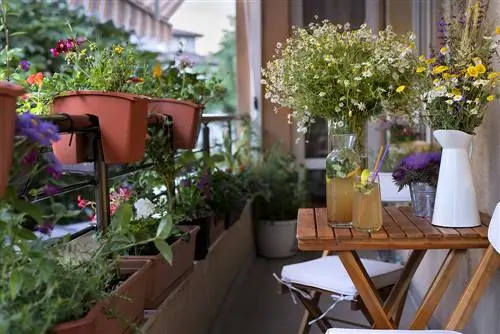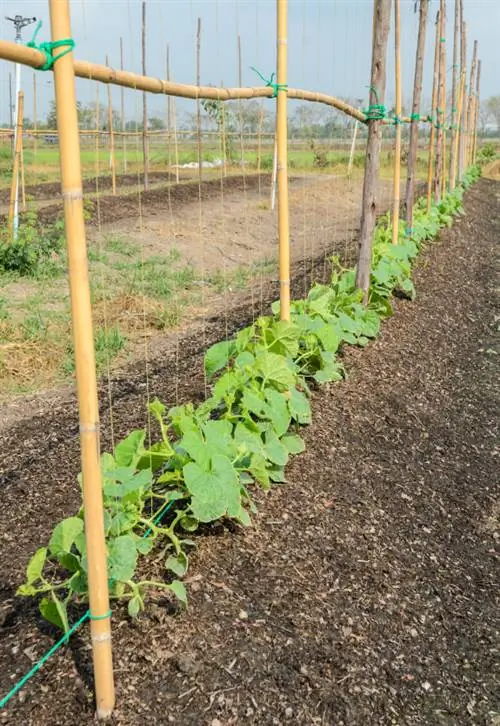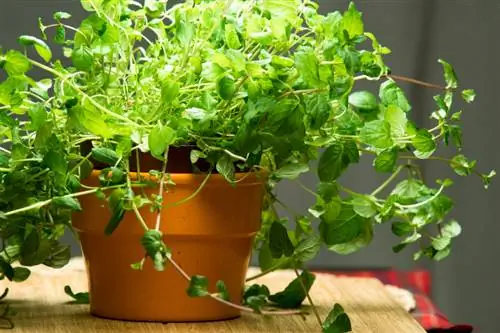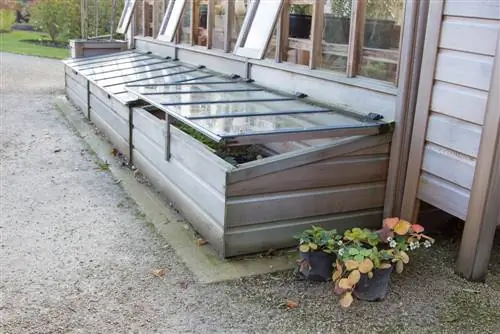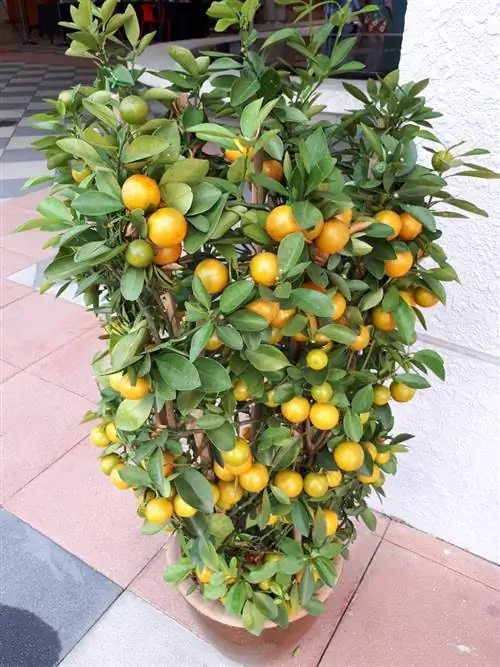- Author admin [email protected].
- Public 2023-12-16 16:46.
- Last modified 2025-06-01 06:02.
Home-grown fruit and vegetables, fresh herbs and fragrant flowers do not depend on a garden. As the proud owner of a balcony, you have a colorful array of easy-care useful and ornamental plants at your disposal to grow your own. These tips are intended for beginners who feel called to become a balcony gardener. How to garden successfully without a garden.
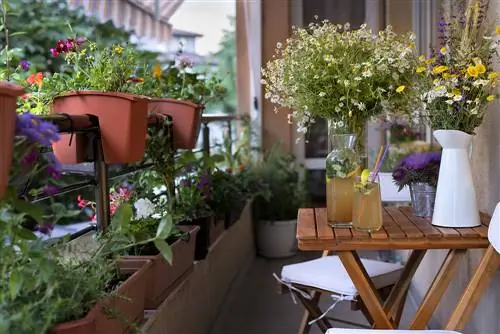
How do I create a successful garden on the balcony?
For a successful garden on the balcony, you should choose robust, small-growing plants such as strawberries, fruit, tomatoes, lettuce, chard, potatoes or herbs. Good planning, suitable planters, peat-free organic vegetable soil and vermicomposting will help you make optimal use of your balcony and make it productive.
Good planning is half the battle - this is what you should pay attention to
In order to make optimal use of the limited space, detailed planning sets the course. Sketch the balcony to scale on a piece of paper. Measure and note free wall areas and the railing as potential growing areas. Under the keyword 'vertical gardening (€20.00 at Amazon)', specialist retailers offer the right planter for every need, from plant bags to raised beds in the form of shelves.
Small in growth - big in yield - recommended crops for the balcony
So that your debut as a balcony gardener is a complete success, we recommend robust, small-growing vegetable and herb plants to start with. The following species and varieties will provide your balcony garden with a rich harvest:
- Fruit: strawberries in the balcony box and fruit in the bucket, such as plums, cherries and apples
- Tomato varieties: Red Marble, Tiny Tim, Red Robin or Humboldtii
- Salad: American lettuce or lamb's lettuce
- Vegetables: chard, potatoes, French beans, cucumbers, peas, mini pumpkin
- Herbs: parsley, rosemary, oregano, basil, sage
Most vegetable and fruit plants transform the garden on the balcony into a colorful sea of flowers when they are in bloom. Marigolds or marigolds provide additional flower joy and also ward off pathogens and pests from their plant neighbors.
How to plant correctly in the garden on the balcony
Please use peat-free organic vegetable soil from specialist retailers as a substrate. To prevent waterlogging from forming in the planter, fill the substrate over a drainage system made of pottery shards, pebbles or expanded clay. Ideally, place a piece of fleece that is permeable to air and water between the vegetable soil and the drainage so that the water-conducting layer does not become blocked.
Tip
There is no room for mineral industrial fertilizers in the garden on the balcony. By reserving a bright niche for a vermicompost when planning, you can create your own natural fertilizer. Here, uncooked kitchen and plant waste is processed by busy microorganisms into valuable humus in order to organically fertilize vegetables, fruit and flowers.

